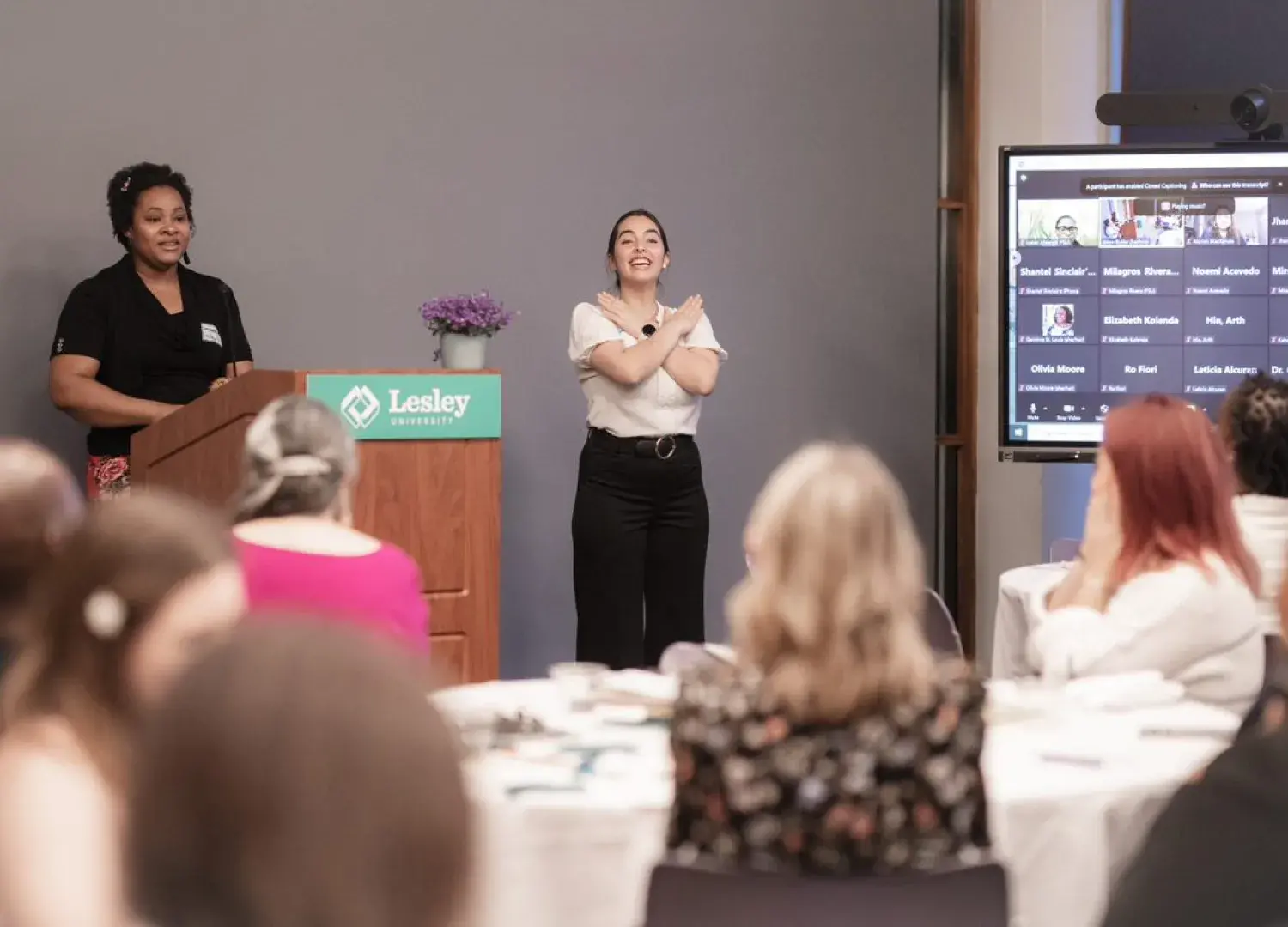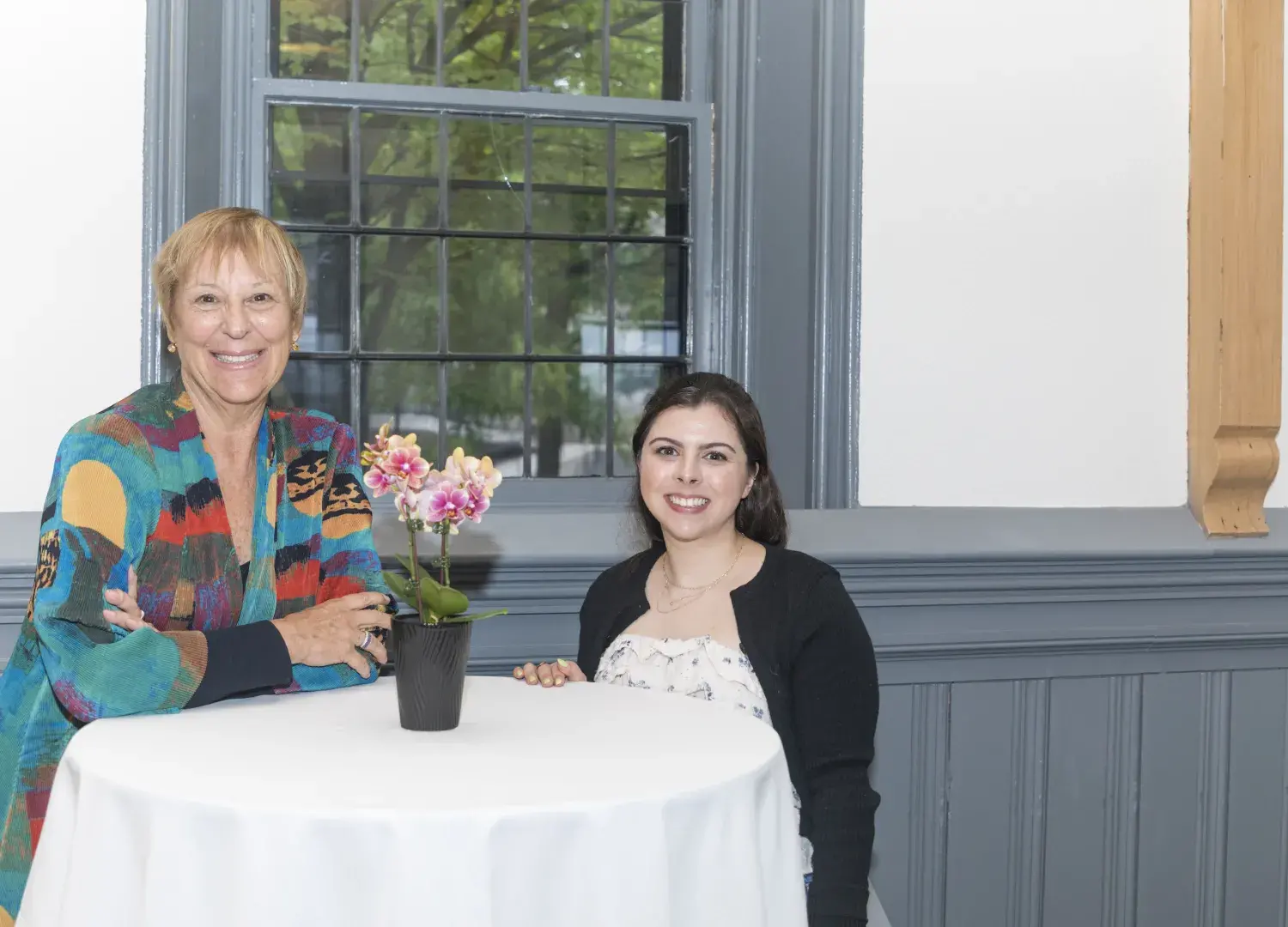Improving lives in the various arenas related to mental health takes hard work, support, and commitment.
It also takes magic, as several people mentioned during last week’s “The Arts in Mental Health Counseling: Creative Leadership” gathering in Washburn Lounge. This event provided an opportunity for the Lesley scholars and community to engage in a conversation on expressive therapies and mental health counseling.
The gathering, designed to celebrate BIPOC graduate students from Lesley as well as from Boston College, Boston University, William James, Framingham State, Bridgewater State and Northeastern University, who received $10,000 scholarships from the Accelerate the Future Foundation. The evening included accolades, personal stories, and anecdotes from the field.
And, because it was hosted by expressive therapists, the event was peppered with dance, movement, and chanting.
“I feel the magic of what you will be doing in your lives,” President Janet L. Steinmayer told about 60 attendees assembled for the evening celebration.
Following Steinmayer, who had been introduced by former Graduate School of Arts and Social Sciences Interim Dean Sandra Walker, GSASS Dean Deanna Yameen and Vice President of Equity, Diversity, Inclusion and Justice Gloria Noronha welcomed attendees.
Kicking things off were remarks from keynote speakers Dr. Tia Lites, a school administrator who earned her Master of Education from Lesley in 2010, and alum Ebony Nichols, a board-certified dance/movement psychotherapist and licensed creative arts therapist, cosmetologist, and entrepreneur. Nichols attends Lesley’s doctoral program in Counseling and Psychology: Transformative Leadership, Education and Applied Research, having been awarded a presidential scholarship.
Throughout the night, speakers used the word magic to describe the mission and practice of diversifying the ranks of therapists of all types. Diversity is crucial, they said, because many people of color who could benefit from mental health counseling and other interventions don’t seek it because few practitioners are of their race or ethnic background.
“Lord knows we need way more people of color in this work,” said Expressive Therapy Professor Karen Estrella, who moderated a panel discussion featuring Lesley alumnae Claude Michelle Aubourg, Maia Monteagudo and Aneesah Dambreville. “It’s not just our identities we bring to this work, but also our creativity.”

